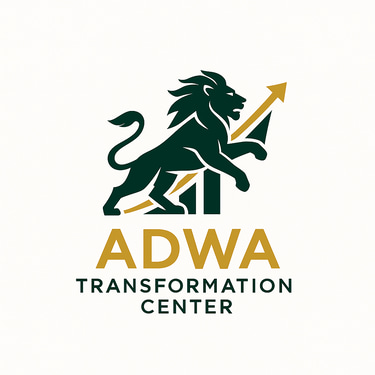Ethiopia’s IPO Directive: A New Dawn or a Double-Edged Sword?
Ethiopia’s capital market is stepping into uncharted territory with the unveiling of its new IPO directive. This groundbreaking regulation promises to revolutionize how companies raise capital and how investors navigate opportunities, bringing much-needed transparency and structure to a previously informal system. With requirements for IPO listings, detailed prospectus contents, and semi-annual financial disclosures, the directive is a leap toward international standards. Features like shelf registration—allowing cost-efficient share offerings for corporations with over 5 billion birr in share value—reflect the forward-thinking nature of this document. However, the directive is not without its challenges. Provisions allowing newly established companies to issue bonds may present risks for investors, while the omission of derivatives regulation leaves Ethiopia’s financial market incomplete compared to global counterparts. As Ethiopia opens its doors to a new financial era, the question remains: can this directive strike the perfect balance between opportunity and risk? The journey begins here.
ECONOMY AND STOCK MARKET
11/16/20247 min read


Addis Ababa, November 14, 2024 – Ethiopia's financial landscape is undergoing a seismic shift. A new IPO directive, hailed as a catalyst for economic growth, promises to reshape the corporate financing landscape. However, beneath the surface, experts warn of potential pitfalls and hidden dangers lurking within the seemingly lucrative regulations.
This week the Ethiopia Capital Market Authority (ECMA) has officially launched a groundbreaking directive detailing the requirements for listing shares and bonds. Presented by ECMA Director Miss Hanna Tehelku, this directive is a pivotal milestone in Ethiopia's financial evolution, ushering in a new era of transparency, accountability, and innovation in the capital market.
With the directive’s comprehensive framework, corporations and investors alike can look forward to opportunities that promise to redefine Ethiopia’s economic landscape. It offers clarity on the process of Initial Public Offerings (IPOs), the required contents of prospectuses, and ongoing disclosure obligations, while also setting the stage for both equity and debt securities to become viable financing alternatives for businesses.
Key Features of the Directive
1. IPO Listing Requirements:
- The directive outlines how share companies can list their shares, emphasizing a structured IPO process that includes regulatory approvals to protect investors and ensure market stability.
2. Prospectus Contents:
- Corporations must prepare a comprehensive prospectus detailing financial standing, operational strategies, risk factors, and other critical disclosures, enabling investors to make informed decisions.
3. Disclosure Requirements:
- Listed companies are required to submit semi-annual and annual financial reports, corporate decisions that have material impact on the company, and other corporate actions to ensure accountability while accommodating the realities of Ethiopia’s market environment.
4. Shelf Registration:
- Companies with a minimum share value of capital of 5 billion birr can leverage shelf registration to streamline the process of future share offerings, reducing costs and enhancing efficiency.
5. Access to Bond Markets for New Companies:
- A unique provision allows newly established companies to raise funds through bond issuance. While beneficial for businesses, this feature could pose risks to investors due to the relative lack of historical data and financial performance records for newer firms.
Dr. Abush Ayalew’s Professional Insights
Dr. Abush Ayalew, a renowned financial expert from Adwatransformation.com, praised the directive’s alignment with international standards while providing thoughtful critiques on areas for future improvement.
Ethiopia’s Directive 1030/2024, which governs the public offering and trading of securities, marks a pivotal moment in the country’s financial evolution. The directive, aimed at fostering a transparent, efficient, and investor-protective capital market, has garnered praise for its robust framework. However, financial expert Dr. Abush Ayalew, an MD/MBA with extensive global financial market experience, identifies key areas where the directive could be refined to achieve its full potential.
“The directive is a well-crafted foundation for Ethiopia’s emerging capital market,” Dr. Ayalew remarked during an interview. He pointed to its strengths, including its comprehensive scope, adaptability for an emerging market, and its emphasis on protecting investors. “By requiring compliance advisors and transparent disclosures, the directive prioritizes investor confidence, which is critical for market growth.”
Dr. Ayalew also highlighted the clarity of procedural guidelines. “The clearly defined timelines for securities registration and detailed requirements for prospectuses provide much-needed structure,” he said. Additionally, he praised the directive’s flexibility, noting provisions for companies under formation and shelf registrations. “These are thoughtful inclusions that accommodate the unique challenges of Ethiopia’s financial landscape.”
“The directive’s inclusion of shelf registration for large corporations is a commendable step forward. It mirrors best practices from markets like the U.S. SEC, reducing costs and encouraging efficient capital raising. Additionally, the structured approach to IPO listings and the detailed disclosure requirements ensure transparency and investor confidence,” Dr. Abush remarked.
However, Dr. Abush pointed out challenges in some of the directive’s provisions: “Allowing newly established companies to issue bonds, while advantageous for their growth, may expose investors to heightened risks. Without a track record of financial stability, such offerings require careful scrutiny by regulators and informed decision-making by investors.”
Dr. Abush also highlighted the transformative implications for Ethiopia’s financial ecosystem: “Expanding equity and debt securities to a broader range of companies introduces a dynamic threat to the traditional lending monopoly of banks. The capital market, as a viable alternative, could outcompete banks in attracting corporate financing. This shift demands that banks reevaluate their strategies and innovate to remain competitive in a market reshaped by capital market realities.”
Dr. Ayalew did not shy away from farther discussing the directive’s limitations. “Its complexity and technical language may be daunting for smaller businesses and new entrants,” he noted. He explained that the directive’s extensive requirements, such as engaging multiple advisors and submitting detailed financial documents, could impose significant costs on small and medium enterprises (SMEs). “This might unintentionally exclude SMEs from participating, which is counterproductive to the goal of inclusivity.”
Enforcement mechanisms also emerged as a concern. “While penalties and administrative measures are outlined, the directive does not provide sufficient detail on how they will be practically implemented,” Dr. Ayalew pointed out. “For a regulatory framework to be effective, enforcement must be both clear and consistent.”
Another challenge, according to Dr. Ayalew, is the potential for procedural bottlenecks. “The timelines for reviewing applications might not be realistic given the Authority’s current capacity. Delays could frustrate issuers and dampen market enthusiasm.”
Dr. Ayalew also flagged a risk of regulatory overlap. “The directive mandates coordination with other laws and regulatory bodies, such as tax authorities and auditors. While this integration is necessary, it could lead to procedural inefficiencies or even conflicts if not carefully managed,” he explained.
Technology and infrastructure requirements were also highlighted as hurdles. “Requiring electronic disclosures and adherence to international accounting standards is ambitious, but it may be a hurdle for entities lacking technical capacity,” he said.
Impact on Investors
For investors, the directive represents a historic opportunity to diversify their portfolios in a transparent and regulated environment. With stringent prospectus and disclosure requirements, they can now access critical information to make well-informed decisions.
However, the inclusion of newly established companies in bond markets necessitates caution. Investors must carefully assess the risks associated with such securities and consider the financial stability and growth potential of issuers.
Impact on Corporations
Corporations stand to benefit significantly from the directive’s framework. By listing shares and issuing bonds, businesses can raise capital efficiently, expand their operations, and gain credibility in both domestic and international markets.
The introduction of shelf registration is particularly advantageous for large corporations, allowing them to plan future share offerings with reduced regulatory hurdles. Additionally, the directive’s focus on transparency and accountability will elevate corporate governance standards across Ethiopia.
The Broader Economic Impact
The directive not only benefits individual corporations and investors but also signals a paradigm shift in Ethiopia’s financial sector. As the capital market matures, its ability to compete with traditional bank lending introduces a new dynamic to corporate financing.
Dr. Abush noted, “Banks must prepare to navigate this new reality. The emergence of the capital market as an alternative financing avenue challenges their traditional dominance. This competition could drive financial innovation and greater efficiency in the banking sector, ultimately benefiting the economy.”
Addressing Limitations
While the directive is a landmark achievement, Dr. Abush emphasized the need for further regulatory advancements:
Dr. Abush Ayalew has expressed deep concern over the limitations of the current regulatory framework for derivatives, particularly stock options. While the US has made significant strides in regulating these markets, notably with the Dodd-Frank Wall Street Reform and Consumer Protection Act of 2010, Dr. Ayalew argues that there are still gaps that leave investors vulnerable.
Dr. Ayalew added, "unregulated markets are breeding grounds for increased volatility, fueled by manipulation and speculative activity. This makes it incredibly difficult to predict price movements and implement effective hedging strategies. Furthermore, the potential for counterparty risk looms large. In an unregulated environment, the risk of the other party in a derivatives contract defaulting on their obligations is significantly higher. This exposes investors to potentially devastating losses if the counterparty fails to uphold their end of the bargain."
Dr. Ayalew also highlighted the importance of transparency in the derivatives market. "The lack of transparency in unregulated markets makes it challenging for investors to assess the true risks associated with stock option contracts. This information gap can lead to uninformed decisions and increased exposure to unforeseen dangers."
Dr. Ayalew farther reiterated that Limited access to reliable market data further exacerbates the problem. Without readily available data on the performance of derivative instruments, investors are left flying blind. This hinders our ability to make informed decisions and effectively monitor our positions, potentially leading to disastrous consequences.
He concluded by emphasizing the importance of investor confidence. "The absence of a comprehensive regulatory framework erodes investor confidence in the market. This can lead to decreased participation and liquidity, which ultimately undermines the very tools we rely on for effective risk management."
To farther address the limitations of the directive, Dr. Ayalew proposed several recommendations. “Simplifying the directive’s language and offering guidance materials would make it more accessible,” he suggested. He also advocated for reducing fees and streamlining processes for SMEs. “Small businesses are the backbone of any economy. Lowering their barriers to entry will democratize the capital market.”
He underscored the need for capacity building and digitization. “Investing in training programs and digital tools for registration and reporting would improve efficiency and ensure smooth implementation,” he said. Dr. Ayalew also called for clearer enforcement protocols. “A detailed framework specifying roles, timelines, and penalties would strengthen accountability and inspire confidence among investors.”
Despite its challenges, Dr. Ayalew remains optimistic about Directive 1030/2024. “This is a milestone in Ethiopia’s financial journey. If these limitations are addressed, it has the potential to not only elevate Ethiopia’s capital market but also serve as a model for other emerging economies,” he concluded.
As Ethiopia charts its path in the financial sector, experts like Dr. Ayalew emphasize that collaboration, refinement, and innovation are key to unlocking the directive’s transformative potential.
A New Era of Financial Transparency and Opportunity
The IPO directive is more than a regulatory document—it is a declaration of Ethiopia’s readiness to establish a vibrant, transparent, and inclusive financial market. By fostering investor confidence and providing corporations with efficient financing mechanisms, it paves the way for sustained economic growth and innovation.
Dr. Abush concluded, “For over 30 years, share offerings in Ethiopia have operated without adequate regulation, often misusing the Ethiopian Trade Law of 1952. This directive introduces a transparent, structured approach to equity financing, ensuring that investors are protected and corporations are held accountable. It is a monumental step toward modernizing Ethiopia’s financial system.”
Call to Action
To explore the implications of this directive and what it means for Ethiopia’s financial future, we invite you to watch insightful webinar discussion featuring Dr. Abush Ayalew and other industry leaders. The webinar includes in-depth analyses, expert opinions, and a live Q&A session.
Watch the webinar on our YouTube channel: [YouTube Link]. This is your chance to be part of Ethiopia’s financial transformation. Don’t miss it!
For those interested to read the directive document, here is the link to download, https://drive.google.com/file/d/18C0urC_U2O5uyQ9Hw5K3Er4oImoxHgnQ/view?usp=drivesdk
#EthiopiaIPO #FinancialRevolution #CapitalMarkets #InvestorInsights #EthiopiaFinance #IPORegulations #MarketTransparency #EconomicGrowth #InvestSmart #CorporateFinance #NewEraFinance #InvestmentOpportunities



